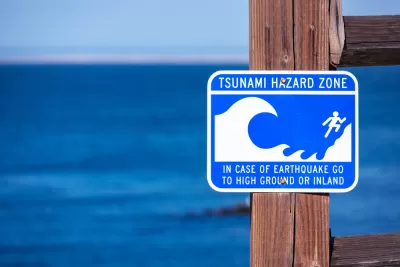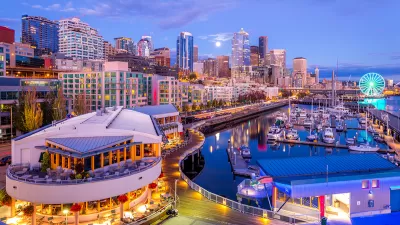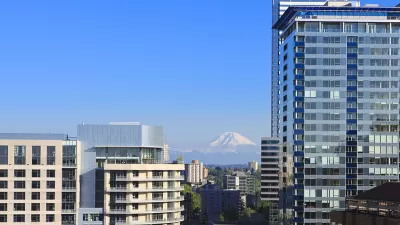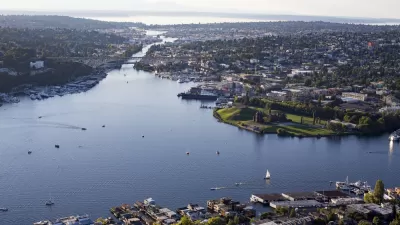The experience of communities and school districts attempting to build elevated structures for residents to wait out the high water of a tsunami, an inevitable threat in the Pacific Northwest, has been challenging and impossible to differing degrees.

“A vast body of geological and historical evidence shows that the question is not whether [a tsunami in the Pacific Northwest] will happen, but when,” writes Eric Scigliano for Crosscut.
Given that certainty, “[y]ou might think it would be hard to argue with a tsunami,” but as Scigliano details in this article, regional officials have found a way to politicize resilience efforts to the point of complete stagnation.
As evidence of the frustrations of resilience planning, Scigliano cites the examples of four school bonds, proposed to fortify endangered coastal schools. The experience of approving these bonds has produced a mixed bag of success and failure—with success in Ocasta, setbacks in Ocean Shores, and failure in Long beach, for example.
Scigliano also notes a different example, of cooperation, set by nearby Native tribes. A lot more detail and insight is available from the source article, below.
FULL STORY: How politics have stalled tsunami prep efforts on the WA coast

Planetizen Federal Action Tracker
A weekly monitor of how Trump’s orders and actions are impacting planners and planning in America.

Restaurant Patios Were a Pandemic Win — Why Were They so Hard to Keep?
Social distancing requirements and changes in travel patterns prompted cities to pilot new uses for street and sidewalk space. Then it got complicated.

Maui's Vacation Rental Debate Turns Ugly
Verbal attacks, misinformation campaigns and fistfights plague a high-stakes debate to convert thousands of vacation rentals into long-term housing.

In California Battle of Housing vs. Environment, Housing Just Won
A new state law significantly limits the power of CEQA, an environmental review law that served as a powerful tool for blocking new development.

Boulder Eliminates Parking Minimums Citywide
Officials estimate the cost of building a single underground parking space at up to $100,000.

Orange County, Florida Adopts Largest US “Sprawl Repair” Code
The ‘Orange Code’ seeks to rectify decades of sprawl-inducing, car-oriented development.
Urban Design for Planners 1: Software Tools
This six-course series explores essential urban design concepts using open source software and equips planners with the tools they need to participate fully in the urban design process.
Planning for Universal Design
Learn the tools for implementing Universal Design in planning regulations.
Heyer Gruel & Associates PA
JM Goldson LLC
Custer County Colorado
City of Camden Redevelopment Agency
City of Astoria
Transportation Research & Education Center (TREC) at Portland State University
Camden Redevelopment Agency
City of Claremont
Municipality of Princeton (NJ)





























